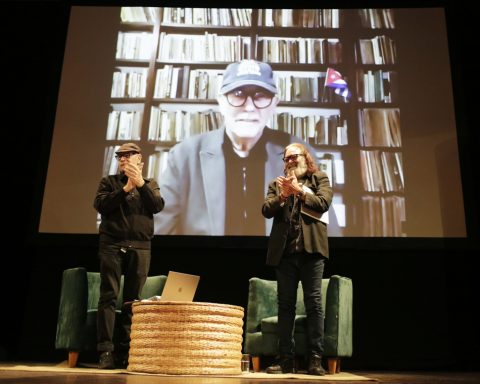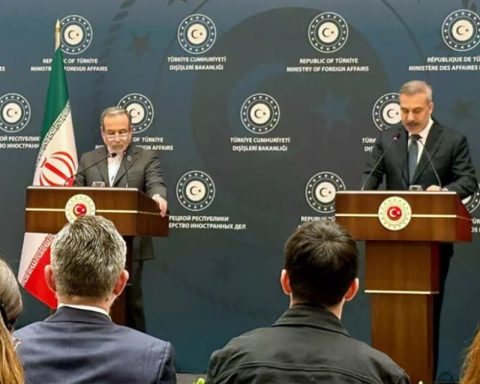Cannes, France | AFP | The short videos of TikTok represent the “freedom to create” without the need for money and the possibility of inventing a “new visual grammar” with vertical planes, believe the young people who use this popular application, associated with this edition of the Cannes Festival.
For the first time, the platform launched a short film contest, to give visibility to creations “much better constructed than what (tiktokers) usually do” explains Angèle Diabang, Senegalese filmmaker, member of the #TikTokShortfilm jury, who presented her prizes on Friday.
Claudia Cochet, a 34-year-old French actress and assiduous tiktoker, won the “best script” award for a three-minute play, “Princesse moderne.”
A stage actress, Cochet discovered the Chinese platform in 2020, when she was unable to act due to confinement.
“Currently I post a video almost every day, scenes of daily life with a tendency to the fantastic. I have 250,000 subscribers,” he explains to AFP.
“TikTok gives me creative freedom and an audience” and it “gives me the confidence to do things on my own.”
For the #TikTokShortfilm contest, this creator wanted to address a serious issue, which in principle does not match the playful tone of the platform: violence against women.
Unusually, the actress wielded a 16K camera. Her creation shows no physical violence, and there are few words, but instead there are many signs of the discomfort and emotion surrounding an abused girl who ends up doing something irreparable to defend herself against her.
“When you are a victim of domestic violence you don’t dare to say it, but you can show it” explains Cochet.
– “New visual grammar” –
“One might think that three minutes is short, but we have really tried to judge them as 120-minute films,” explained Camille Ducellier, a French director and member of the jury, during the awards ceremony.
“The vertical format that TikTok imposes “allows us to reinvent a whole new visual grammar,” he says.
“This frame is not only something that identifies the mobile phone, but also alludes to a window, a door, and suddenly it approaches the painting.”
Eric Garandeau, director of TikTok France, which devised the contest, said “tens of thousands of creators” from 44 countries participated.
TikTok, he says, “takes us back to the origins of cinema.”
“Cinema today is sometimes a bit ‘fat’ and TikTok offers a shorter alternative and a more intense experience,” he estimates.
The Slovenian Matej Rimanic, who won the Grand Prize, makes a nod to those first creations in the history of cinema with a black and white love story, in which two twentysomethings send messages to each other through paper airplanes.
The jury for this first prize was heterogeneous, from Khaby Lame, who according to the platform is the second person with the most followers in the world, to Franco-Cambodian filmmaker Rithy Panh, president of the jury.
Rithy Pahn surprised Cannes by submitting her resignation, alluding to “pressure” from the platform on the choice of the jury. Hours later, just before the awards ceremony, he announced that he was once again part of the judging panel, which in his opinion “was once again sovereign.”











